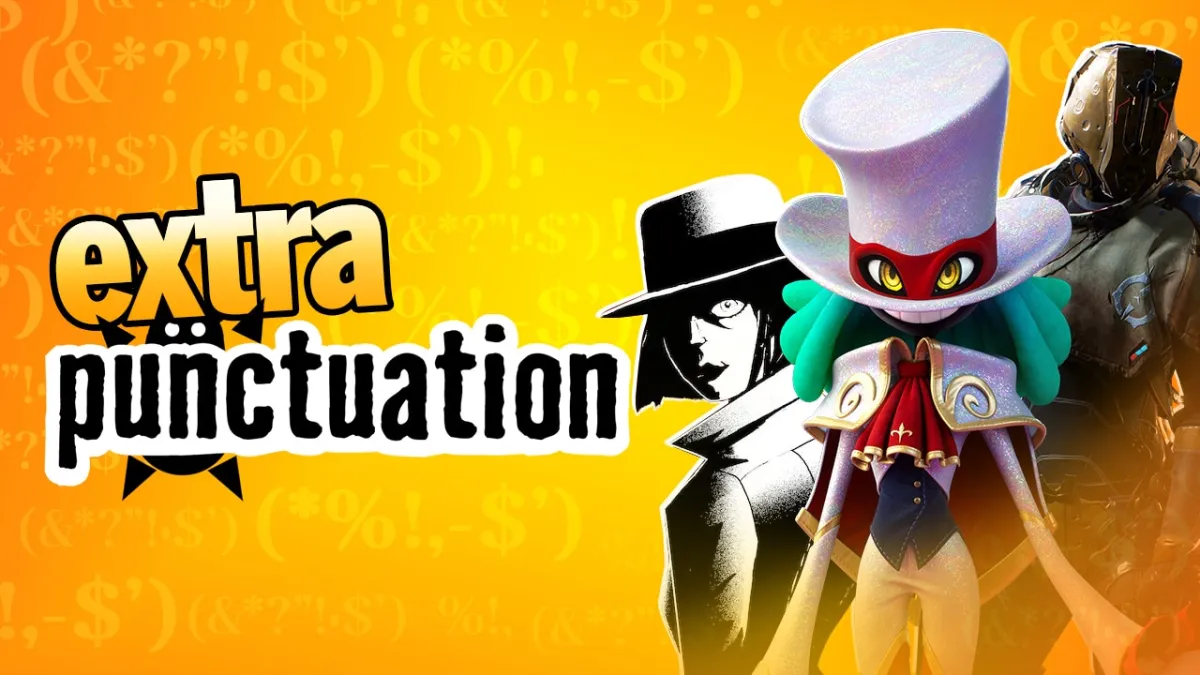This week on Extra Punctuation, Yahtzee explains some issues of game discovery these days and then discusses why bad video games are better than bland video games.
You know I complain a lot about how triple-A games all follow the same templates and are designed by committees and ask too much of developers and soak up all the attention and money and are overreliant on pushing the newest hardware and treat their audiences like dairy cows and suck and stymie innovation and suck and suck and suck so bloody hard, and every time I talk about it I get the same counter. “Ah, but what about indie games, Yahtz? The indie sphere teems with innovation because the barrier to entry for making and publishing games is so low these days. Yes, this does result in a constant deluge of indie games of extremely variable quality, especially on Steam, but the really good ones usually float to the top.”
I was thinking about this after talking about Undertale last time, and it’s true, indie games on Steam are a pretty purely meritocratic system where only the really good and innovative titles accrue the word of mouth necessary to get a visible profile, but you know what, that just doesn’t seem fair. You can’t be mind-blowingly good or new all the time and it’s unreasonable to ask that of anything.
There are a lot of problems with the meritocratic system for indie games. Firstly, quality is subjective. It’s not good games that float to the top, strictly speaking, it’s the ones with broad appeal, hence all the anime sex games that show up on Steam’s trending list, which certainly do have broad appeal, lol pun. There are no doubt oceans of middling quality games on Steam that I’ve never caught wind of but which would uniquely appeal to me and I just haven’t got the time to play every sodding game to look for them. There’s a game called Filcher on Steam with all of 57 reviews at time of writing that I bought for the sole reason that one of the creators tagged me on Twitter mentioning it’d taken influence from a game I made, and my ego is very large and ungainly these days. Yeah, take note, indie developers, there’s your fast track to a shout-out right there.
Filcher’s not that great or easy on the eyes and the title’s one letter away from a very naughty word indeed but I enjoyed it because its primitive 3D art and first person stealth gameplay based around light and noise levels and socking guards unconscious with a small black dildo brought back fond nostalgic memories of the early Thief games, quite intentionally I’m sure. The point is I ended up giving it more of my time than I have a lot of other games that people have recommended to me promising I’ll really love this one this time no really, and it was only pure happenstance that I found it. The meritocratic system just isn’t good for helping niche games find their audience.
But that’s not really what I wanted to talk about. The fact is, the current system for both triple-A and indie games just doesn’t bring enough exposure to incredibly bad games. And I decry this state of affairs. I’m standing up now for video gaming’s right to really, really suck.
Regular ZP viewers will know that many years back I began supplementing my annual top 5 and bottom 5 with the blandest 5 games as well. I started doing this because being bland is not quite the same thing as being bad, in my estimation. Bland is worse than bad. A lot worse. Sometimes people ask me if I prefer to review good games or bad games, and frequently I reply that they’re about equally as fun, it’s the bland games, the mediocre ones that feel like a chore. The only reason we play games or experience any kind of art is to make ourselves feel something, and even contempt and disgust are feelings. That being the case, the very worst thing a game can do is not provoke much feeling at all.
It’s only a specific kind of bad that I want populating my bottom five list, games that are awful and misguided but which I still come out of feeling positive. They might be frustrating, annoying or incomprehensible in the moment but at least I know they’ll be interesting to write about later. I wouldn’t use the phrase “so bad it’s good.” “So bad it’s good” is very rare in video games because most games feature at least some kind of repetitive gameplay loop and you can’t usually MST3K through the same thing over and over again. A more appropriate phrase might be “car crash fascinating.” The sort of thing where you really want to break it down and try to figure out the logic that went into it.
That’s why Balan Wonderworld was my worst game of 2021 – I challenge you to find a more car crash fascinating game than that. It’s so horribly designed. I mean, what was with that fox that intermittently turns into a cube? And yet, it presents itself so confidently. It clearly made sense to someone. Just as outsider art is necessary to help us question our inherent biases and understandings of what art can be, truly bad games are an enriching part of the culture that surrounds gaming. By examining precisely why the fox intermittently turning into a cube was a stupid idea we gain fresh appreciation for game design fundamentals.
In contrast, bland games are a cultural void. Games built from taking established formulas and mashing the copy-paste buttons until you’re left completing an endless conveyer belt of identical, perfectly efficiently designed challenges until the emotional part of your brain dries up. Nothing that calls itself entertainment media should leave you feeling emotionally numb and yet this is what the triple-A industry keeps deliberately churning out with its identikit shooters and sandboxes because all the punters who just want to kill time with non-threatening Skinner boxes make them more reliably bankable than anything that wants to take a risk.
And with that prevailing wind, I worry that the truly interestingly bad game is in danger of dying out. Oh sure, there’s no end of terrible indie games along with no end of every other kind of indie game, but a game that’s bad because it lacked resources or because the creators weren’t very skilled isn’t an interesting story. It’s just to be expected, really. Car crash games require a certain set of ingredients – the money, resources and talent to realise the creator’s vision, and the vision itself being completely fucking nuts. And the creator must have that specific kind of ego as well that makes them utterly deaf to criticism.
That’s the root of it right there, isn’t it. So often these stories of legendary car crash games or so bad they’re good movies are really stories about their creators, the Tommy Wiseaus, the Neil Breens, the Jon Romeros of the world. But no interestingly terrible idea can survive a triple-A level of publisher scrutiny and divided responsibility. An industry of committee design is by its very nature hostile to single visions. Just look at that Bloomberg article about Ken Levine from a few weeks back that is initially about how Ken Levine is totally Duke Nukem Forevering his new project but ends up turning into a blatant hit piece against the whole concept of auteurism. That’s the voice of the industry, right there. Stop having ideas and keep making those skinner boxes, drones.
No, if you want car crashes, the place to go these days is the world of crowdfunding. ‘Cos that’s what happens when you subtract experience and knowledge from the process of greenlighting. But half the time you don’t even get a game to take the piss out of ‘cos they just scarper with the money. Or they don’t. And those are the weirdest ones. The ones that just stand there not producing anything and gormlessly staring into space as other people’s money piles up around their feet. And after a while you stop finding it funny and start worrying about the mental states of everyone involved. But never mind, I’m sure Star Citizen will be out any day now.






Published: Jan 13, 2022 12:00 pm